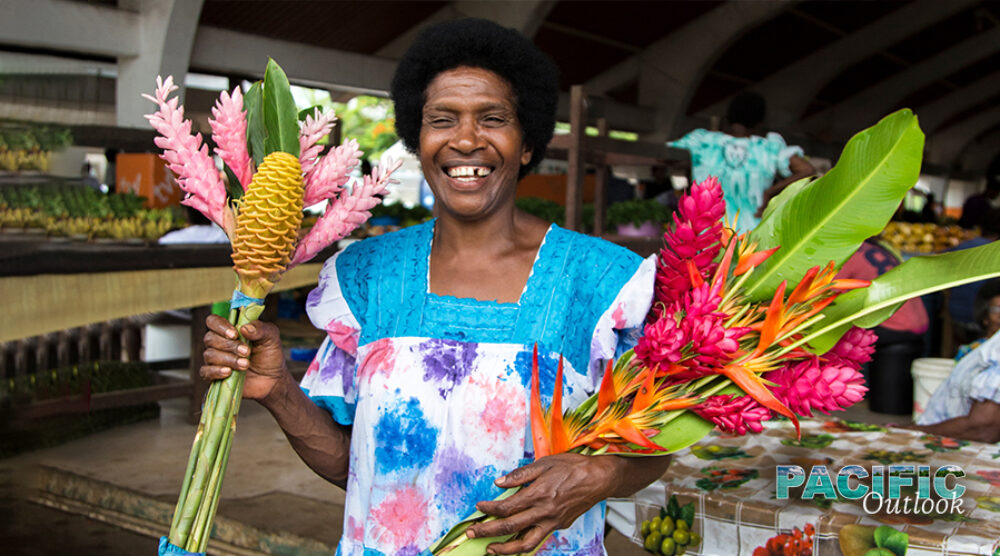JAMIE TANGUAY |
Vanuatu has recently ranked second in the Happy Planet Index (HPI)—a measure of efficiency in delivering long and happy lives with minimal environmental impact. It is Vanuatu’s third appearance in the HPI top five since it was ranked first out of 178 countries in 2006. The HPI flips the development narrative on its head by starting with the assumption that long and happy lives are what governments and societies are interested in achieving, and then measuring the impact on planetary resources each nation claims in pursuit of that assumed goal.
News of Vanuatu’s top rankings in the HPI delivers a positive identity narrative that counters development narratives portraying Vanuatu and similar countries as small, poor, vulnerable, relatively unhealthy and undereducated. A deliberate transition to a “well-being economy” that prioritises efficiency in meeting human and environmental well-being needs will trigger a virtuous cycle that drives Vanuatu (and hopefully other countries in the region) to better social and economic outcomes while embracing a positive narrative that amplifies Pacific identities.
Data on wellbeing in Vanuatu and the region
The Melanesian Wellbeing Indicators initiative of the Vanuatu Government commenced in 2010. The Vanuatu National Statistics Office (VNSO), together with stakeholders of the Vanuatu National Cultural Council, developed indicators that address gaps in official statistics related to wellbeing as identified through social research. The 2012 pilot study report, illustrated the value of reflecting social and cultural values in national statistics that can be used to gauge progress. It created a space for policy dialogue that expand the government mandate beyond a focus on endless growth and increased consumption.
The office of the Prime Minister of Vanuatu began consultations in 2013 to establish national planning priorities. The government wanted a balanced and sustainable approach to replace the existing Priorities Action Agenda that tended to focus on economic development without consideration of environmental concerns. Furthermore, the government wanted to balance social, environmental, and economic priorities on a foundation of culture—also missing from the existing framework.
National stakeholders lobbied for their priorities to be in the new framework, culminating in the 2016-2030 National Sustainable Development Plan (NSDP). A Monitoring and Evaluation Framework for the NSDP establishes 198 key progress indicators against 98 policy objectives organized within 15 goals and distributed across three pillars of development. These indicators aim to show progress towards a stable, sustainable, and prosperous future for Vanuatu.
Roughly 10 percent of national policy objectives in the NSDP are informed by the Melanesian wellbeing indicators. These include indicators of subjective wellbeing as well as indicators of resource access, traditional knowledge to use available resources productively, and measures of community vitality.
Trends in Vanuatu Well-being
The launch of the 2019-2020 NSDP Baseline Survey “Well-being in Vanuatu” report in July 2021 allowed for comparisons of data collected over 10 years and offered some evidence of social change and shifting priorities. The survey captured household information for the 12-month period just prior to the COVID-19 border closure in March 2020 and devastating direct blow to the northern and central provinces from category 5 tropical cyclone Harold.
Access to indigenous lands, living in households that possess basic traditional production skills, and participation in community and social activities continue to show positive correlations with wellbeing. The strength of those correlations remains to be tested, but it is surely an area worth investigating.
Rural dwellers, previously happier on average when compared with urban counterparts, are now eclipsed by the levels of happiness recorded in towns. This shows potential improvements in urban quality of life, as this demographic grows in relation to overall population growth. Access to land and natural resources has diminished some—likely as a result of this urban drift and associated disconnection of identity and lands. Urban dwellers are less likely to learn or use local indigenous languages, and we find a reduced proportion of the population having or benefitting from basic traditional production skills as well as support from social networks in times of need.
This downward trend in the things that comprise the foundation of the traditional economy shows a growing dependence on cash, and a changing culture reflected in consumer behaviours. As the population turns to the cash economy to support its needs, expectations of government are growing.
Opportunities of the HPI spotlight
A second place rank in the Happy Planet Index is good publicity. What has happened in the past, and seems to be happening again, is the misinterpretation of the HPI to mean “Vanuatu is the second happiest country in the world”. While that perception of the index is inaccurate, it offers opportunities to boost tourism once the borders reopen, making Vanuatu more competitive in the Pacific market. It also has the potential to attract foreign direct investment and add weight to the national voice on issues of climate change and the sovereignty of Pacific island peoples.
There are other opportunities that the HPI ranking can bring. Most importantly are ways in which the positive identity can lead to solutions to real-world issues facing Vanuatu. Dialogue on some of the larger issues facing the country, which may challenge development and threaten a future that is stable, sustainable, and prosperous will likely put these topics as priorities that are within the sphere of governance, both formal and traditional, to address.
Jamie Tanguay is the Well-being Project Management Advisor for the Vanuatu National Statistics Office. He is a dual citizen of Vanuatu and the United States and has a Masters in International Relations from the Johns Hopkins School of Advanced International Studies (SAIS) in Washington, DC.








